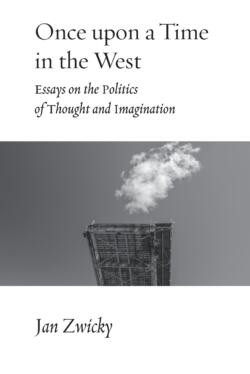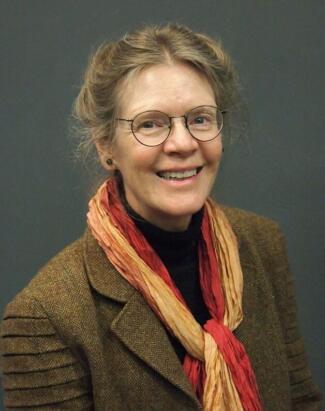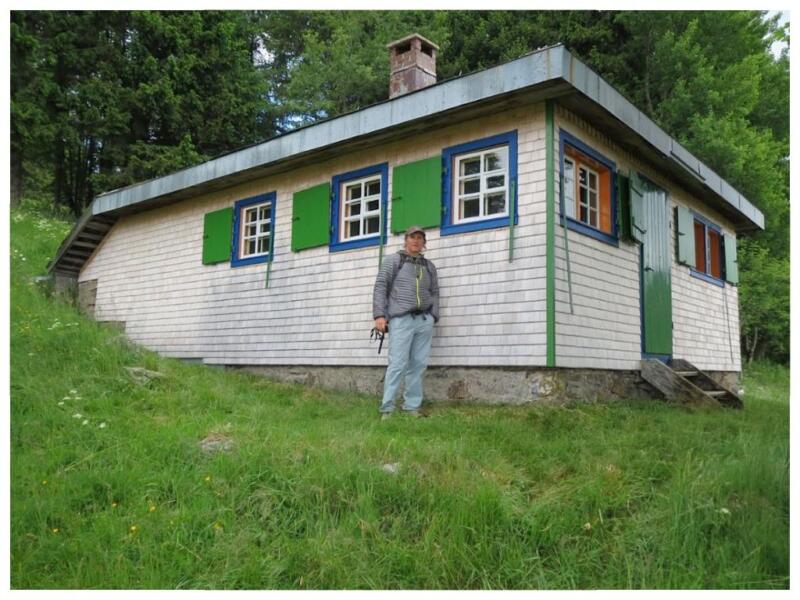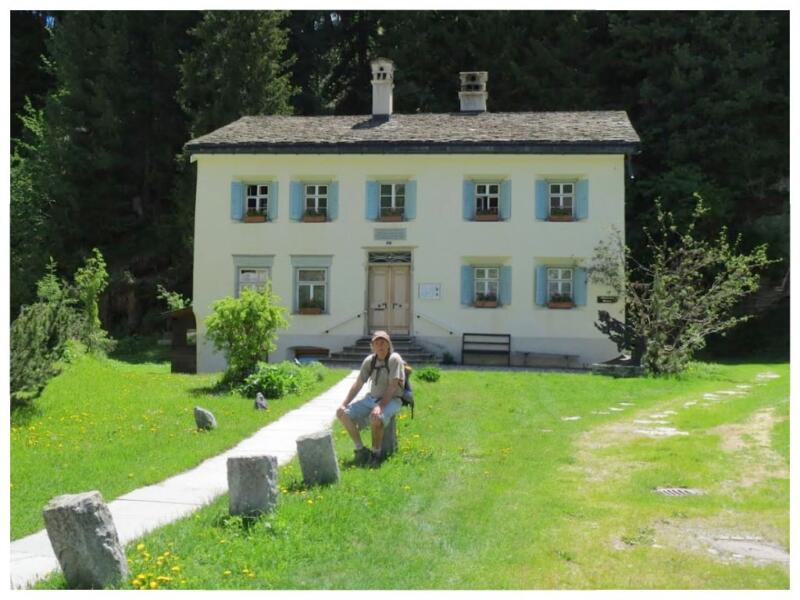1897 Cultivating contemplation
Once upon a Time in the West: Essays on the Politics of Thought and Imagination
by Jan Zwicky
Montreal: McGill-Queen’s University Press, 2023
$29.95 / 9780228017097
Reviewed by Ron Dart
*
 I lived for a couple of years in the young 1970s in northern Norway and Switzerland. I spent time in Norway with the mountain Sami—this was a period of time when Arne Naess (Norwegian mountaineer, Spinoza scholar and founder of deep ecology with Delores LaChapelle) worked closely with the Sami to oppose the large dam projects. Naess lived in Austria from 1933-1935 and was involved, when there, with the Vienna Circle and Wittgenstein. When I was in Switzerland I took in the Swiss mountaineering tradition and soaked myself in the writings of Renaissance scholar Jacob Burckhardt (complicated history with Nietzsche), Hesse and Heidegger. I have been fortunate to spend time at Heidegger’s hut in southern Germany (Todtnauberg) and Nietzsche’s home in Sils Maria. I mention the above for the simple reason that each of these thinkers were focused and preoccupied with the dilemma of the West and its seeming deterioration and decline, its rushing like a stampede to a cliff’s edge, its hyper and unanalyzed addiction to the vita activa and its opposition to the vita contemplativa—such are the legitimate and focused concerns of Jan Zwicky’s recent probes and beauty of a book, Once upon a Time in the West. “Once”, “Time” and West” the target, the suggestive and classical fairy tale sequence not to miss.
I lived for a couple of years in the young 1970s in northern Norway and Switzerland. I spent time in Norway with the mountain Sami—this was a period of time when Arne Naess (Norwegian mountaineer, Spinoza scholar and founder of deep ecology with Delores LaChapelle) worked closely with the Sami to oppose the large dam projects. Naess lived in Austria from 1933-1935 and was involved, when there, with the Vienna Circle and Wittgenstein. When I was in Switzerland I took in the Swiss mountaineering tradition and soaked myself in the writings of Renaissance scholar Jacob Burckhardt (complicated history with Nietzsche), Hesse and Heidegger. I have been fortunate to spend time at Heidegger’s hut in southern Germany (Todtnauberg) and Nietzsche’s home in Sils Maria. I mention the above for the simple reason that each of these thinkers were focused and preoccupied with the dilemma of the West and its seeming deterioration and decline, its rushing like a stampede to a cliff’s edge, its hyper and unanalyzed addiction to the vita activa and its opposition to the vita contemplativa—such are the legitimate and focused concerns of Jan Zwicky’s recent probes and beauty of a book, Once upon a Time in the West. “Once”, “Time” and West” the target, the suggestive and classical fairy tale sequence not to miss.

Once upon a Time in the West is divided into 14 reflective and meditative chapters, the personal and philosophical woven together on a finely textured tapestry of thought and insight. The initial chapter, “Auden as Philosopher: How Poets Think” is the golden key that walks the attentive reader into this bounty of a book, two ways of seeing and the consequences for the West of taking one path or the other: “Auden’s Poetic Epistemology” versus “The Epistemology of Baconian Science.” Bacon was somewhat more sophisticated than his detractors make him out to be but the NOVUM ORGANUM, when pushed too far, conceals much that Zwicky’s read of Auden-Coleridge discloses—this is a chapter worthy of multiple slow reads.
The next few chapters walk the attentive reader into the emerging lyrical way of Zwicky, layered notions of Nature, human making, and human heeding, how we might cultivate a receptive, silent, and listening posture and what is revealed in such a way of being: “Wilderness and Agriculture,” “Once Upon a Time in the West: Heidegger and the Poets,” and “Lyric Realism: Nature Poetry, Silence and Ontology” walks the longing reader into deeper ways of being. The chapter on Heidegger builds on the chapter on Auden but does so in a playful and puckish manner, a history of some of the peaks, ridges and valleys of philosophy summed up in a way not to miss overview. I appreciated this chapter as I have spent some splendid moments at Heidegger’s hut, silently sitting on the hillside, doing my limited best to take in what he was trying to get at, in his turn, to a contemplative and wise way of knowing, and the political misdirection taken as he interpreted what this might mean for his thrownness, hours, and ethos. The role of poetry is, though, once again turned to as a needful way to both know and be philosophical. I did my best to heed “The Ethics of the Negative Review” while playing my small role in this review.

The turn to Austria and Hapsburg Vienna, potential reads and misreads of Wittgenstein were brought to front stage in “Integrity and Ornament” and the more ponderous “The Novels of Pascal: A Review of Correction by Thomas Bernhard” the challenging yet meandering read of reflection and thinking, turning against itself in the German Krankheit (my wife, being German, suggested an apt translation could mean a deeper form of soul sickness). Zwicky did massage, in this chapter, the relationship to Wittgenstein or perhaps not so.
It is impossible in this act and scene of our all too human journey to do philosophy and poetry and ignore the pressing ecological givenness that is presented before us and our response to the historic reasons for the dilemma and means and ways of interpreting it. Zwicky has alluded and delved into the reality in previous chapters but “Being Will be Here, Beauty Will Be Here, But This Beauty That Visits Us Now Will Be Gone” and “A Note on Jane Jacob’s Systems of Survival, or Why We Will Not Be Able to Prevent Global Ecological Collapse” have a dire and almost eschatological dimension to them, apocalyptic tendencies by which I mean a reading the runes and messages of our future. Is Zwicky going too far down a probing yet questionable end in such a twilight view of the West in these chapters? There are certainly claims made that need to be heard, heeded, internalized and some sort of “praxis” by way of a reply. Is it, in fact, too late to even ask such a question or a combination of questions? One of our most significant Canadian public philosophers was George Grant. I have written five books on Grant. Grant’s 1965 classic, Lament for a Nation: The Defeat of Canadian Nationalism was much more than merely a High Tory lament and jeremiad contra the defeat of an older notion of Canadian nationalism—Grant anticipated, in most ways, Zwicky’s lament for a dying West, a West that has lost its footing, its virtues, its canon in a variety of worrisome forms of liberalism in which liberty-reason-will have come to colonize ways of knowing and being public. It would have been of some interest to see Zwicky in dialogue with Grant in Once upon a Time in the West, both Grant and Zwicky indebted to both the Classical tradition and Plato.
“On Rules and Moral Beauty”, “Lyric, Narrative, Memory,” and “The Syntax of Ethical Style” touch wisely and well on significant and not to miss themes– Zwicky’s tender yet relentless probes on both the need for rules yet a moral beauty that transcends them, multiple aphoristic reflections on the differences between lyric-poetic way of knowing and a more linear-logical-narrative way of knowing (these distinctions by different names essential to Zwicky’s legitimate burden of what has been sacrificed in a one dimensional way of knowing) oneiric and, again, narrative way of being contrasted. It is not, for Zwicky, an either-or approach to seeing and being but an attempt to correct a form of imperial knowing that has colonized deeper ways of knowing and brought about soul sleep and our cultural malaise. I was delighted to note Zwicky’s appreciation of Weil and Pasternak (two favourites of mine), Weil, in many ways, Grant’s Diotima, Pasternak’s poetic Doctor Zhivago a vocational outworking of his deeper lyrical soul.

I can certainly empathize with Zwicky’s chapter on public education in “Frost and Snow” (retired this year from almost 35 years of teaching), much public education having little to do with the classical vision of the good and more about what Grant and Heidegger called “techne” contra wisdom and contemplation as meaningful education. Grant left McMaster in the early 1980s in an act of counter cultural rebellion against the drift and direction of a rather crude and philistine attitude to education that Leacock described so poignantly and pointedly in his classic Arcadian Adventures with the Idle Rich. “Frost and Snow” threads together a clean, simple yet profound Chinese poem (many are the Chinese poems in the book) with Zwicky’s fuller and more ample insights on the crude notions of much contemporary education.
“Haydn’s F-Flat” fini and adieu to the book is a subtle and nuanced blend of Zwicky’s dirge yet not quite retreat and cynicism—it’s a musical form that embodies a lyrical message, the cadence, hints and whispers a perennial theme across time and place.
Once Upon a Time in the West invites the reader to see further and deeper, the fairy tale evocation, for most raised on myth and fairy tale, concluding with “they lived happily ever after”—the inevitable struggle (“agon”) in most myths and fairy tales and the anticipated overcoming by the end, and yet, the Preface beginning with “Western Civilization is over” the startling door into Zwicky’s cathedral of thought. There is no doubt that Once upon a Time in the West is a must-read beauty by one of Canada’s finest poets and philosophers, although I think some of the conclusions and genealogy needs questioning and tempering, the tragic pathway ever in tension with the comedic—the Renaissance, Reformation, and Enlightenment are complex historic realities and each phase is thick with internal tensions and clashes. I mentioned Burckhardt at the beginning of this review and his vocation as a Renaissance scholar (deeply grounded in the classical ethos). Erasmus, like Burckhardt, spent many a year in Basel, Erasmus ever mining the gold of the Reformation and Renaissance while jettisoning the dross.
I have many an affinity with the insightful probes of Zwicky in Once Upon a Time in the West but, hopefully, gracious and kindly questions linger in my lyrical mind and imagination, soul, and senses. But, do read and inwardly digest this gift of a book—medicine for the ailing soul and a faithful soul whisperer that must needs be heard. And, hopefully not a negative review—the beginning of a potential dialogue on the fate and future of the West?
*

Ron Dart has taught in the Department of Political Science, Philosophy, and Religious Studies at the University of the Fraser Valley since 1990. He was on staff with Amnesty International in the 1980s. He has published 40 books including Erasmus: Wild Bird (Create Space, 2017) and The North American High Tory Tradition (American Anglican Press, 2016). Editor’s note: Ron Dart has recently reviewed books by Jan Zwicky & Robert V. Moody, D.L. (Donna) Stephen, Elizabeth May, Stephen Hui (Destination Hikes), Stephen Hui (105 Hikes), and David Crerar, Harry Crerar, & Bill Maurer for The British Columbia Review. He has also contributed three essays: From Jalna to Timber Baron: Reflections on the life of H.R. MacMillan, Roderick Haig-Brown & Al Purdy, and Save Swiss Edelweiss Village to The BC Review.
*
The British Columbia Review
Interim Editors, 2023-24: Trevor Marc Hughes (non-fiction), Brett Josef Grubisic (fiction)
Publisher: Richard Mackie
Formerly The Ormsby Review, The British Columbia Review is an on-line book review and journal service for BC writers and readers. The Advisory Board now consists of Jean Barman, Wade Davis, Robin Fisher, Barry Gough, Hugh Johnston, Kathy Mezei, Patricia Roy, Maria Tippett, and Graeme Wynn. Provincial Government Patron (since September 2018): Creative BC. Honorary Patron: Yosef Wosk. Scholarly Patron: SFU Graduate Liberal Studies. The British Columbia Review was founded in 2016 by Richard Mackie and Alan Twigg.
“Only connect.” – E.M. Forster
5 comments on “1897 Cultivating contemplation”